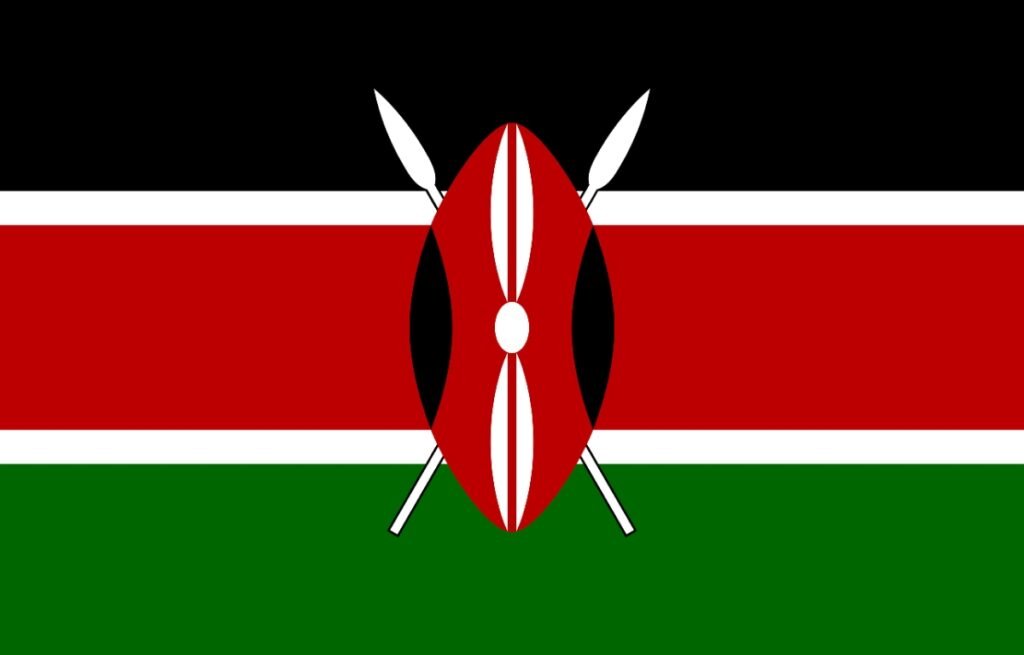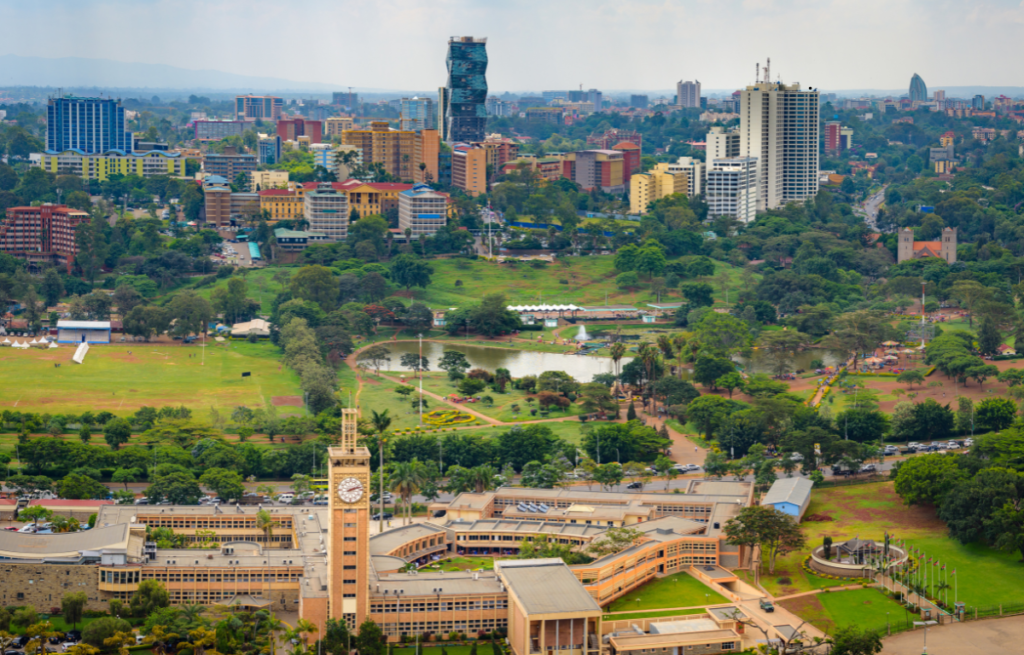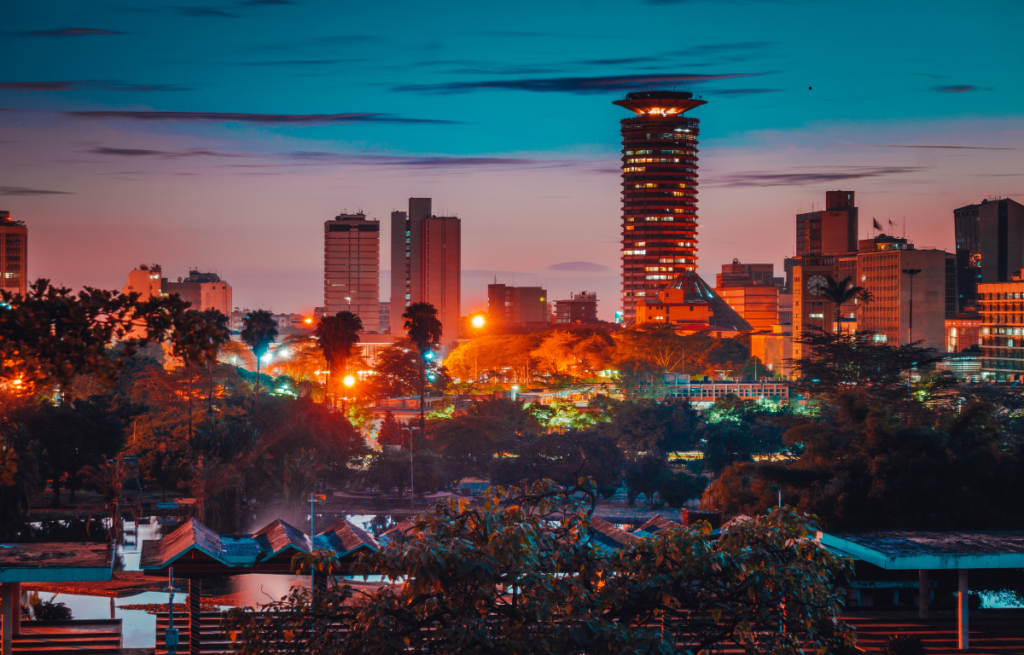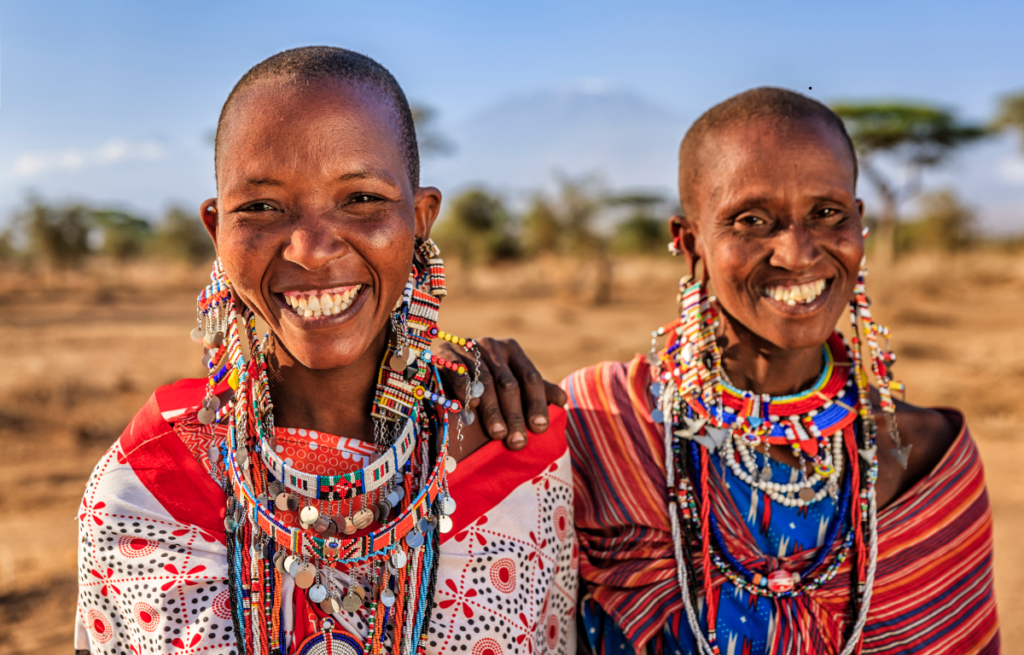
Kenya is a country that captivates travelers with its diverse landscapes, rich culture, and abundant wildlife. From the iconic savannas of the Maasai Mara to the bustling streets of Nairobi, there’s something for every type of traveler.
Whether you’re exploring the vibrant cities, relaxing on pristine beaches, or venturing into the wild for a safari, Kenya offers a unique and unforgettable experience. This guide will walk you through essential tips for traveling to Kenya, including insights on local culture, safety, and an often-overlooked aspect—how to enhance your experience by being accompanied by a local guide or companion.
1. Essential Travel Information for Kenya
Before packing your bags for Kenya, there are a few key details every traveler should know to ensure a smooth and enjoyable trip. Kenya, located in East Africa, is known for its remarkable wildlife, cultural diversity, and breathtaking landscapes, making it a top travel destination for adventurers and nature lovers alike.
Language and Communication
Kenya is a multilingual country, but the official languages are English and Swahili, which makes communication relatively easy for international visitors. English is widely spoken in urban areas, hotels, and by those working in the tourism industry. However, it’s always a good idea to learn a few basic Swahili phrases as a gesture of respect, which can go a long way in more rural areas or when interacting with locals. Simple phrases like “Jambo” (hello) and “Asante” (thank you) are appreciated.
Currency and Payment Methods

Kenya’s official currency is the Kenyan Shilling (KES), and it’s important to familiarize yourself with the exchange rates before your trip. Credit cards are widely accepted in major cities such as Nairobi, Mombasa, and Kisumu, particularly in hotels, restaurants, and shopping malls. Visa and Mastercard are the most commonly accepted cards, although American Express might not be as widely used.
However, it’s advisable to carry some cash, especially when visiting smaller towns, rural areas, or local markets where card payments may not be possible. ATMs are easily accessible in most urban areas, but it’s wise to withdraw enough cash before heading to more remote locations. Mobile payment systems like M-Pesa are also incredibly popular in Kenya, allowing users to pay for services, transfer money, or buy goods via mobile phones, which is useful for travelers staying for extended periods.
Passport and Visa Requirements
Travelers to Kenya will need a valid passport with at least six months of validity remaining from your planned departure date. Visa requirements depend on your nationality, so it’s important to check whether you need one before departure. For most visitors, obtaining a Kenyan visa is a straightforward process, thanks to the convenient eVisa system.
The eVisa can be applied for online through the official Kenyan eVisa portal. All you need to do is fill out the form, upload the required documents (such as a passport-size photo and your passport), and pay the visa fee. In most cases, you’ll receive your eVisa within a few business days. It’s recommended to apply for your visa at least one week before your trip to avoid any last-minute issues. Upon arrival, make sure to carry a printout or digital copy of your eVisa for presentation at immigration.
Health and Vaccinations
Kenya is a tropical country, so it’s important to review health requirements before traveling. Some vaccinations, such as yellow fever, are mandatory for entry if you’re arriving from certain countries or regions. It’s also recommended to consult your doctor about additional vaccines for diseases such as hepatitis A and B, typhoid, and tetanus.
Additionally, malaria prophylaxis is recommended for travelers visiting certain areas, particularly rural regions and national parks, as Kenya is in a malaria-endemic zone. In addition to taking malaria tablets, use insect repellent and sleep under mosquito nets when in areas where mosquitoes are prevalent.
To ensure a safe trip, pack a small first aid kit with basic medicines for common issues like stomach upsets or headaches, and bring mosquito repellent and sunscreen to protect yourself from insect bites and the strong equatorial sun.
It’s important to have comprehensive travel insurance that covers medical emergencies, especially if you plan to go on safaris or adventurous activities like trekking on Mount Kenya. Health facilities in Nairobi and Mombasa are generally good, but rural areas may not have the same level of medical care, so insurance can give you peace of mind.
Climate and Best Time to Visit
Kenya’s climate varies depending on the region, but generally, the country experiences a mix of tropical and temperate weather. There are two rainy seasons: the long rains (March to May) and the short rains (October to December). The best time to visit for safaris and wildlife viewing is during the dry seasons (June to October and January to February) when animals congregate around waterholes, and the weather is cooler and more comfortable.
For beach lovers, Kenya’s coastal regions along the Indian Ocean, including destinations like Mombasa and Diani Beach, are warm and humid year-round, making it a great escape regardless of the season.
Transportation and Getting Around
Kenya has a fairly well-developed transport network, with Jomo Kenyatta International Airport (NBO) in Nairobi serving as the main international gateway. From here, travelers can catch domestic flights to popular destinations such as the Maasai Mara, Mombasa, and other safari parks. Local airlines, including Kenya Airways and Jambojet, offer frequent and affordable flights across the country.
For getting around cities, taxis, rideshare services (like Uber and Bolt), and public minibusses known as matatus are commonly used. However, it’s important to choose reputable taxi services or rideshare options for safety, especially at night. For longer road trips, it’s also possible to hire a private driver or rent a car, although driving in Kenya requires caution due to varying road conditions and local driving habits.
By knowing these essential details about traveling to Kenya, you’ll be better prepared to enjoy all the incredible experiences this country has to offer—from safaris and wildlife adventures to cultural encounters and beautiful beach escapes.
2. Best Places to Visit in Kenya
Kenya boasts a wealth of breathtaking destinations that cater to all types of travelers, whether you’re drawn to nature, culture, or history. From its iconic savannas teeming with wildlife to its vibrant urban centers and serene coastlines, Kenya offers endless adventures and discoveries. Here are some of the top must-see destinations when visiting Kenya:
Maasai Mara: The Ultimate Safari Experience
The Maasai Mara is undoubtedly Kenya’s crown jewel when it comes to wildlife and safari adventures. This vast savanna, part of the greater Serengeti ecosystem, is world-famous for its incredible wildlife diversity and the Great Migration—a natural spectacle where over 1.5 million wildebeests, zebras, and gazelles migrate between Tanzania’s Serengeti and the Maasai Mara from July to October. Witnessing this migration is considered one of the most impressive wildlife experiences on the planet.
Visitors to the Maasai Mara can expect to encounter the “Big Five”—lions, elephants, leopards, rhinos, and buffalos—as well as cheetahs, giraffes, zebras, and an array of bird species. Game drives, hot air balloon rides, and guided walking safaris are popular ways to explore this majestic landscape. Staying at one of the many luxury lodges or tented camps allows you to immerse yourself in nature while enjoying all the modern comforts.
Nairobi: A Blend of Modernity and Tradition

Kenya’s bustling capital, Nairobi, is a vibrant city where tradition meets modernity. While many travelers use Nairobi as a starting point for safaris, the city itself offers a rich mix of history, culture, and entertainment that’s well worth exploring.
Nairobi National Park is one of the few places in the world where you can go on a safari just a short drive from a major city. Home to lions, giraffes, zebras, and rhinos, this park is an excellent introduction to Kenya’s wildlife. Be sure to visit the Giraffe Centre, where you can get up close and personal with endangered Rothschild giraffes, and the David Sheldrick Wildlife Trust, a renowned elephant orphanage where rescued baby elephants are rehabilitated.
For those interested in history and culture, the Karen Blixen Museum (former home of the author of Out of Africa) offers a glimpse into colonial-era Kenya. Nairobi’s vibrant art scene, local markets like Maasai Market, and an eclectic array of restaurants serving both local and international cuisine make it an exciting city to explore.
Nightlife in Nairobi is also a major attraction. The city has a wide selection of bars, clubs, and live music venues. It’s a great way to experience the urban energy of Kenya, especially when accompanied by a local who can introduce you to the best spots.
Mombasa: A Coastal Paradise
For those seeking a blend of relaxation and history, Mombasa is Kenya’s premier coastal destination. Located along the Indian Ocean, Mombasa boasts white sandy beaches, turquoise waters, and a rich cultural history influenced by centuries of trade between Africa, the Middle East, and Europe.
Mombasa’s Old Town is a charming maze of narrow streets, Swahili architecture, and historic landmarks like Fort Jesus, a UNESCO World Heritage Site that dates back to the 16th century. The town’s history reflects a melting pot of Arab, Portuguese, Indian, and British influences, making it an interesting destination for history buffs.
Diani Beach, located just south of Mombasa, is a tropical paradise with crystal-clear waters and palm-fringed beaches. This is the perfect spot for relaxing or indulging in water sports like snorkeling, diving, and deep-sea fishing. The nearby Kisite Mpunguti Marine Park is an underwater wonderland of coral reefs, dolphins, and colorful marine life, offering some of the best diving in East Africa.
The coastal region is also renowned for its fresh seafood, with beachfront restaurants serving up delicious Swahili cuisine infused with spices and flavors from the Indian Ocean. Mombasa’s laid-back atmosphere, combined with its rich cultural history, makes it a must-visit destination for travelers seeking both relaxation and adventure.
Mount Kenya: A Trekker’s Dream
For adventurous travelers, Mount Kenya offers an exhilarating challenge and a chance to experience one of Africa’s most spectacular mountain landscapes. As the second-highest peak in Africa after Kilimanjaro, Mount Kenya rises to a staggering 5,199 meters (17,057 feet) and is a UNESCO World Heritage Site. Its snow-capped peaks and dramatic landscapes provide a stunning backdrop for those who enjoy hiking and mountaineering.
Trekking up Mount Kenya is a rewarding experience that takes you through diverse ecosystems—from bamboo forests and moorlands to alpine meadows and glaciers. The climb offers various routes, with Point Lenana (4,985 meters) being the most accessible peak for trekkers. The more challenging Batian and Nelion peaks are reserved for experienced mountaineers.
For those not aiming to reach the summit, Mount Kenya’s lower slopes are home to Mount Kenya National Park, where visitors can enjoy wildlife viewing, birdwatching, and nature walks. The park is inhabited by a variety of wildlife, including elephants, buffaloes, and leopards, as well as unique plant species that are adapted to the high-altitude environment.
Lamu: A Step Back in Time
For a more off-the-beaten-path experience, Lamu Island, part of the Lamu Archipelago, is an enchanting destination where time seems to stand still. Lamu Town is one of Kenya’s oldest continuously inhabited towns, and its streets are free of cars, adding to the sense of timelessness.
A UNESCO World Heritage Site, Lamu Old Town is a well-preserved example of Swahili architecture, with centuries-old stone houses, intricately carved wooden doors, and winding alleyways. The town’s laid-back atmosphere is a stark contrast to the busier cities, making it a perfect retreat for those seeking a quiet escape.
Explore Lamu’s rich history through its museums, mosques, and bustling markets, or take a dhow (traditional sailing boat) ride through the archipelago’s pristine waters. Lamu is also famous for its festivals, including the Lamu Cultural Festival and the Maulidi Festival, both of which offer a deep dive into Swahili culture.
3. Accompanied by a Local: Enhancing Your Experience in Kenya
One of the best ways to truly immerse yourself in Kenya’s culture is by spending time with a local companion who can introduce you to the hidden gems and provide you with a deeper understanding of the country’s unique atmosphere. Whether you’re navigating the vibrant nightlife, attending a traditional event, or exploring the local food scene, having a local by your side can make the experience far more enjoyable, authentic, and seamless.
Why Being Accompanied by a Local Enhances Your Trip
While guidebooks and online resources offer plenty of useful advice, there’s no substitute for the insider knowledge that a local can provide. Kenyan cities like Nairobi and Mombasa are full of energy and life, and while they are welcoming to tourists, it’s easy to miss out on the authentic experience if you don’t know where to go or how to engage with the culture.
A local companion can show you the best spots that are often off the beaten path, whether it’s a hidden rooftop bar, a restaurant serving the best nyama choma (grilled meat), or a unique venue where local artists and musicians perform. They can help you navigate unfamiliar areas, recommend the safest and most exciting places, and ensure you’re seeing the true heart of Kenya, not just the tourist attractions.
The Benefits of an Escort or Companion
For some travelers, particularly those exploring Kenya’s vibrant nightlife or attending high-profile social events, being accompanied by a female escort in Nairobi or other towns (or a male escort, accordingly) can be a way to elevate the experience. This isn’t just about companionship—having someone who knows the local culture inside and out can provide valuable insights into Kenyan customs, etiquette, and how to navigate social situations with ease.
Here are some reasons why a female escort or local companion can enhance your experience in Kenya:
- Safety and comfort: Traveling solo in an unfamiliar environment can sometimes feel intimidating, particularly if you’re attending social events or exploring the nightlife scene in cities like Nairobi. A local companion can provide a sense of security, ensuring that you feel comfortable and confident while enjoying the city’s offerings.
- Cultural guidance: Social norms in Kenya may differ from what you’re accustomed to, especially in terms of how to behave at events, clubs, or restaurants. A local companion can help you understand cultural etiquette, from how to greet people to appropriate dress codes for different occasions.
- Navigating language barriers: While English is widely spoken, knowing some Swahili phrases or understanding local slang can help you connect better with the people you meet. A local companion can help with translations or even teach you some key Swahili expressions, making your interactions more meaningful.
- Access to exclusive venues: Some of the best experiences in Kenyan nightlife may not be easy to find or gain entry to unless you know the right people. A local escort or guide who’s familiar with the city’s social scene can introduce you to exclusive clubs, invite-only events, or local hotspots where you’ll experience the best Kenya has to offer.
Exploring Nightlife with a Local
Kenya’s nightlife, especially in cities like Nairobi and Mombasa, is vibrant and diverse, offering everything from live music venues and swanky rooftop bars to laid-back beach parties. However, exploring it on your own can be a bit overwhelming, especially if you’re unfamiliar with the area. This is where a local companion can be invaluable.

In Nairobi, for example, clubs like The Alchemist, Brew Bistro, and Milan are some of the go-to spots for nightlife enthusiasts, offering a mix of local and international music, excellent cocktails, and stylish atmospheres. Having a local with you can make the experience more authentic and relaxed. You’ll feel more at ease dancing to Kenyan beats, trying local drinks, or socializing with the crowd when you’re guided by someone who knows the scene.
In Mombasa, where the nightlife often revolves around the coast, beach bars and resorts come alive at night. Whether you want to enjoy live Swahili music at a beach party or dance the night away at clubs like Moonshine Beach Bar or Shakatak Disco, being accompanied by a local ensures you know the best places to go and how to enjoy the evening in a way that is safe and memorable.
Attending Events and Festivals with a Local
Kenya is also home to a variety of cultural festivals and events that offer unique insights into the country’s traditions and creative expressions. Attending these with a local companion can significantly enrich your experience.
For instance, the Lamu Cultural Festival celebrates the rich Swahili heritage through music, traditional dances, dhow races, and culinary experiences. A local guide can help you understand the significance of the events, introduce you to local artisans or performers, and show you the best places to sample Swahili delicacies.
Another highlight is Blankets & Wine, a popular music and arts festival held in Nairobi, showcasing a blend of African music, food, fashion, and art. With a local companion, you’ll know where to find the best stalls, mingle with the crowd, and fully immerse yourself in the creative atmosphere.
Breaking Down Cultural Barriers
One of the biggest challenges for travelers is navigating cultural differences, especially in social settings. Kenya’s culture is warm and welcoming, but knowing how to approach conversations, what to wear, and how to behave in different environments can make a big difference in your interactions with locals.

For example, when visiting a nightclub or restaurant, it’s common to greet people formally, often with a handshake or fist bump. In some settings, it’s important to dress modestly or adhere to certain cultural norms. Having a local companion can provide helpful guidance on these nuances, ensuring that you make a positive impression and feel comfortable in any social situation.
4. Staying Safe and Traveling Smart in Kenya
Kenya is generally a safe and welcoming destination for tourists, offering incredible experiences from wildlife safaris to coastal getaways. However, as with any travel destination, staying aware of your surroundings and following some basic safety tips is key to having a smooth and enjoyable trip. Here’s what you need to know about staying safe and traveling smart in Kenya:
Be Mindful of Your Belongings
Like many popular tourist destinations, Kenya has areas that may attract petty theft or pickpocketing, particularly in crowded places such as markets, public transportation, or busy streets. To minimize risk, always be conscious of where your valuables are:
- Keep your belongings secure: Use a cross-body bag or a backpack with hidden compartments to reduce the chances of theft. Avoid carrying large amounts of cash or displaying expensive items such as jewelry or electronics, especially in public.
- Stay alert in crowded areas: Cities like Nairobi, Mombasa, and popular tourist spots can get busy. Be particularly vigilant when moving through bus stations, airports, or crowded events.
- Avoid walking alone at night: While many areas in Kenya are safe, it’s best to avoid walking alone after dark in unfamiliar locations. Stick to well-lit areas, and if you need to travel at night, opt for a trusted mode of transportation.
By taking these precautions, you can significantly reduce the likelihood of encountering issues and enjoy your travels worry-free.
Use Registered Taxis or Rideshare Services
Getting around in Kenya is relatively straightforward, with options ranging from matatus (local minibuses) to boda bodas (motorbike taxis), but for safety, it’s advisable to use registered taxis or reliable rideshare services.
- Rideshare apps like Uber and Bolt are available in major cities such as Nairobi and Mombasa. These services are generally safer than hailing a taxi off the street, as rides can be tracked and you know the driver’s identity ahead of time.
- Licensed taxis are another good option, particularly for airport pickups or late-night transport. Ask your hotel or accommodation provider to recommend a trusted taxi service if you’re unsure.
- If you do use local public transport like matatus, which is convenient and affordable, be aware that they can sometimes be overcrowded and may not follow strict road safety rules. Ensure your personal belongings are secure and, if possible, sit near the driver or in a less crowded section.
In rural areas or safari destinations, private car hires or transfers arranged through your lodge or tour operator are often the safest and most convenient way to get around.
General Safety Tips
While Kenya is generally a friendly and hospitable country, understanding local customs and being mindful of basic safety measures will help ensure your trip goes smoothly.
- Respect local customs: Kenya is a culturally diverse country with over 40 ethnic groups, each with its own customs and traditions. Always be respectful of local etiquette, dress modestly when visiting rural areas or religious sites, and ask for permission before taking photos of people or their property.
- Stay informed: Keep an eye on local news and travel advisories, especially if you plan to visit regions near borders where there may be security concerns. Your embassy’s travel updates are a good resource for staying informed about any potential risks.
- Be cautious with wildlife: If you’re on a safari, follow the guidelines provided by your guide or lodge when interacting with or viewing wildlife. Never approach animals too closely or leave your vehicle in unsafe areas. Kenya’s wildlife is majestic, but it’s important to remember that these are wild animals and safety should always be your priority.
Emergency Contacts and Resources
Before traveling to Kenya, make sure to note important emergency contacts such as your embassy’s number and Kenya’s emergency services (911 for police and ambulance services). In addition, it’s useful to have the contact information of your hotel or tour operator, as they can assist in case of any issues or emergencies.
By being prepared and following these simple safety measures, you’ll be well-equipped to enjoy the wonders of Kenya—from its bustling cities and serene beaches to its unforgettable wildlife experiences. With a little foresight, your trip can be both safe and spectacular.
Final Thoughts
Traveling to Kenya offers a beautiful blend of adventure, culture, and relaxation. From world-class safaris in the Maasai Mara to the vibrant nightlife of Nairobi, there’s something for every traveler. Whether you’re exploring Kenya on your own or prefer the added benefits of being accompanied by a local guide, Kenya promises an unforgettable journey filled with warmth, hospitality, and adventure.
For those looking to enhance their experience, choosing to explore with the company of a local can open doors to unique, off-the-beaten-path experiences. Whether through a professional tour service or by arranging companionship via services like NairobiDiscreet.com, having a local guide or female escort by your side can provide added cultural insight, safety, and access to exclusive spots—all while making your trip more enjoyable and personalized.
A companion with insider knowledge can help you navigate Nairobi’s bustling nightlife, ensure you’re aware of local customs and etiquette, and take you to the best dining spots or hidden venues known only to locals. This added layer of expertise and companionship can elevate your entire experience, ensuring that you make the most of every moment in Kenya.
So pack your bags, embrace the magic of Kenya, and get ready for the trip of a lifetime. Whether solo or with a local company, you’ll leave with unforgettable memories of this vibrant and diverse destination.
